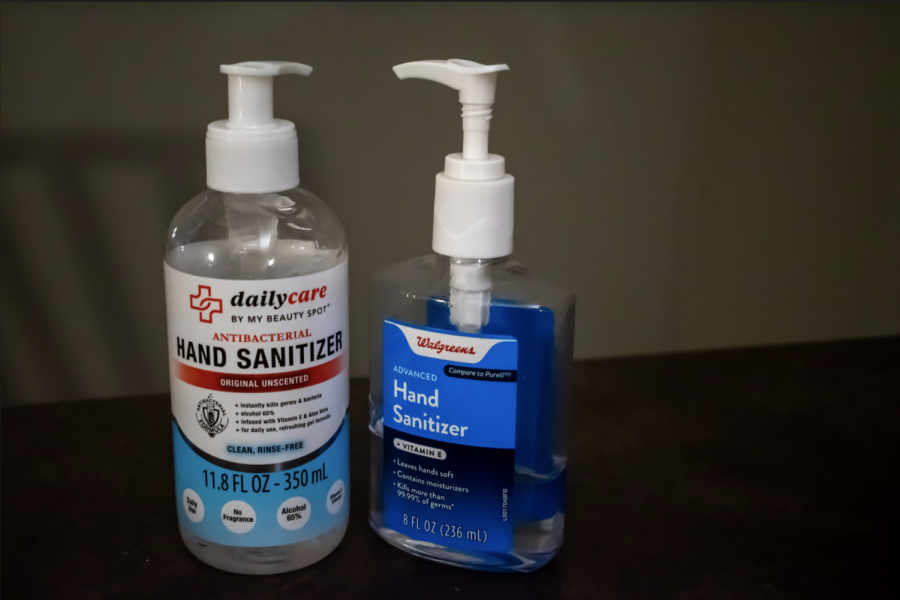First-years go through many steps as they start their college journey. From commitment to orientation, COVID-19 has put a wrench in these time-honored traditions.
The return to campus has been anything but normal. One change has been the addition of a student position through the Student Wellness Center: the Make The Difference Ambassador program.
“This group is comprised of 75 students ambassadors, many of whom hold other leadership roles on campus as well as others who simply felt a call to help their fellow students navigate campus during this global pandemic,” Sara Smith, director of Alcohol and Other Drug Prevention and Education Programs, said in an email.
Students in peer educator roles inform their fellow students on the eight dimensions of well-being — health topics that have a significant impact on the wellbeing of college students. Topics include alcohol and drugs, stress reduction and mental health advocacy and sexual violence prevention.
Peer educators also assist with bystander intervention education through the Red Watch Band and Bringing in the Bystander programs.
The Make The Difference Ambassador program was created this year, building on peer education as they staff campus in groups to promote COVID-19 safety and education.
Ambassadors’ responsibilities include assisting with navigation, providing support and a welcoming presence and promoting COVID-19 education.
They educate their peers about the pandemic and proper safety procedures. Ambassadors distribute masks, sanitizers, wipes and welcome kits.
Smith said the American College Health Association recommended prevention education to address COVID-19 on college campuses. This includes information regarding mask wearing, social distancing and practicing effective hygiene, such as hand-washing.
Smith said that Make The Difference Ambassadors are paid, as they are committing at least five hours a week to the role.
“We are hoping to staff the position through the first month of the semester, giving community members time to develop routines and wayfinding in our campus community,” Smith said in an email.
Jennifer Pennypacker, a junior in the College of Arts & Sciences, is one of the student ambassadors.
“We are trying to make sure that students on campus have the supplies and guidance they need to make it through this first month of classes, given all the COVID protocols,” Pennypacker said. “The student ambassadors are positioned around campus to be a guiding hand.”
She said that they have disposable masks for students to take if they need them.
“We also have packets of alcohol wipes so students can feel safe about wiping down their desks … and any other surface that they are using while on campus,” Pennypacker said. “In addition, we ensure that students around campus are wearing masks, and properly so, to ensure everyone’s safety.”
She said that she and her fellow ambassadors try to be examples to their fellow students by displaying the conduct they wish everyone would follow.
“We all are hoping that we’ll be here until Thanksgiving,” she said. “We’re trying to make wearing a mask the norm, making people feel safe.”
Pennypacker said that she thinks the ambassador program is helpful in educating students about Marquette’s policies and is also a good tool for students who need navigation assistance around campus.
Katie Clancy, a junior in the College of Business Administration, is also a Make The Difference Ambassador.
“We like to use inclusive, nonconfrontational language so it’s ‘Oh, could we put our mask on,'” she said. “We use inclusive language so it’s not like you’re attacking the person you’re talking to.”
She said that ambassadors stress the community aspect of Marquette as they work on campus because Marquette can only stay on campus if everyone works together.
“We’re making a difference,” Clancy said. “We’re make the community better together.”
Stephanie Quade, dean of students, said that the ambassador position builds on the responsibilities of Orientation Staff and Peer Health Educators.
“I have been thrilled with this new position and with both the performance of the Ambassadors and the response from the community as a whole,” Quade said in an email. “In fact, we are talking about having students in comparable roles in the future, for the first couple weeks, as new students are finding their way.”
Clancy said she has found that most students respond to reminders from student ambassadors to put on masks or maintain social distancing. She said she plays music while she works and thinks her positivity and excitement encourage students to listen.
“I know that it can be scary with the potential for cases and whether or not classes are going to continue,” Pennypacker said. “I feel like if everyone has the mindset that we’re going to make it to Thanskgiving … we can do it if we put our minds to it.”
Ambassadors are stationed near Central Mall, the David Straz Business Building, Schroeder Complex, West Town Mall and SHAMU — the area between Schroeder Hall and the Alumni Memorial Union.
This story was written by Shir Bloch. She can be reached at shir.bloch@marquette.edu.





